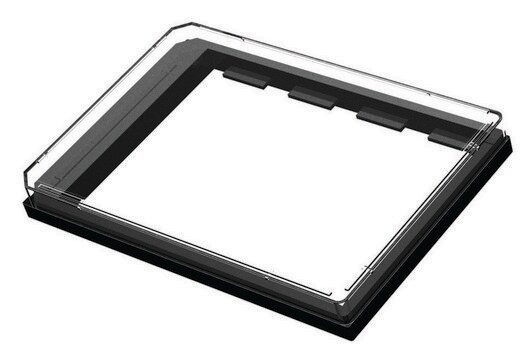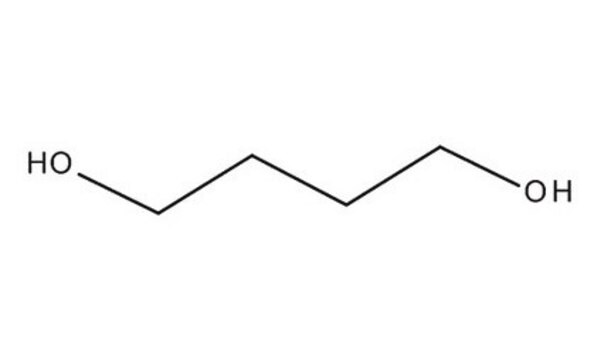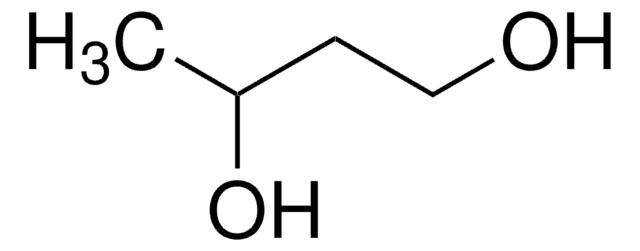8.07481
1,3-Propanediol
for synthesis
Synonyme(s) :
1,3-Propanediol, Trimethylene glycol, 1,3-Propylene glycol
About This Item
Produits recommandés
Pression de vapeur
<0.1 hPa ( 20 °C)
Niveau de qualité
Essai
≥98.0% (GC)
Forme
liquid
Température d'inflammation spontanée
405 °C
Puissance
15670 mg/kg LD50, oral (Rat)
>20000 mg/kg LD50, skin (Rabbit)
Limite d'explosivité
2.5 % (v/v)
pH
4.5-7.0 (20 °C, 100 g/L in H2O)
pb
213-215 °C/1013 hPa
Pf
-32 °C
Solubilité
100 g/L
Densité
1.05 g/cm3 at 20 °C
Température de stockage
2-30°C
InChI
1S/C3H8O2/c4-2-1-3-5/h4-5H,1-3H2
Clé InChI
YPFDHNVEDLHUCE-UHFFFAOYSA-N
Application
- Biopolymer synthesis: Illustrated by the extractive adsorption study of Sui et al., where 1,3-Propanediol was effectively isolated using novel resin technologies. This application is crucial for the sustainable production of biopolymers, impacting sectors from industrial manufacturing to biotechnology (Sui WB et al., 2023).
- Hydrogenation processes in chemical synthesis: Examined by Zhang et al. in the development of bimetallic catalysts for the efficient hydrogenation of diethyl malonate to 1,3-Propanediol. This research is relevant for chemists and researchers looking to optimize reaction processes for producing high-value chemicals in a sustainable manner (Zhang J et al., 2024).
- Enhancement of microbial production systems: Explored by Jiang et al., where the inactivation of specific metabolic pathways in Klebsiella pneumoniae led to enhanced production of 1,3-Propanediol. This is crucial for the biotechnological production of this compound, offering insights for principle investigators and researchers focused on metabolic engineering and industrial biotechnology (Jiang W et al., 2024).
Remarque sur l'analyse
Density (d 20 °C/ 4 °C): 1.051 - 1.053
Identity (IR): passes test
Code de la classe de stockage
10 - Combustible liquids
Classe de danger pour l'eau (WGK)
WGK 1
Point d'éclair (°F)
Not applicable
Point d'éclair (°C)
Not applicable
Certificats d'analyse (COA)
Recherchez un Certificats d'analyse (COA) en saisissant le numéro de lot du produit. Les numéros de lot figurent sur l'étiquette du produit après les mots "Lot" ou "Batch".
Déjà en possession de ce produit ?
Retrouvez la documentation relative aux produits que vous avez récemment achetés dans la Bibliothèque de documents.
Les clients ont également consulté
Notre équipe de scientifiques dispose d'une expérience dans tous les secteurs de la recherche, notamment en sciences de la vie, science des matériaux, synthèse chimique, chromatographie, analyse et dans de nombreux autres domaines..
Contacter notre Service technique








